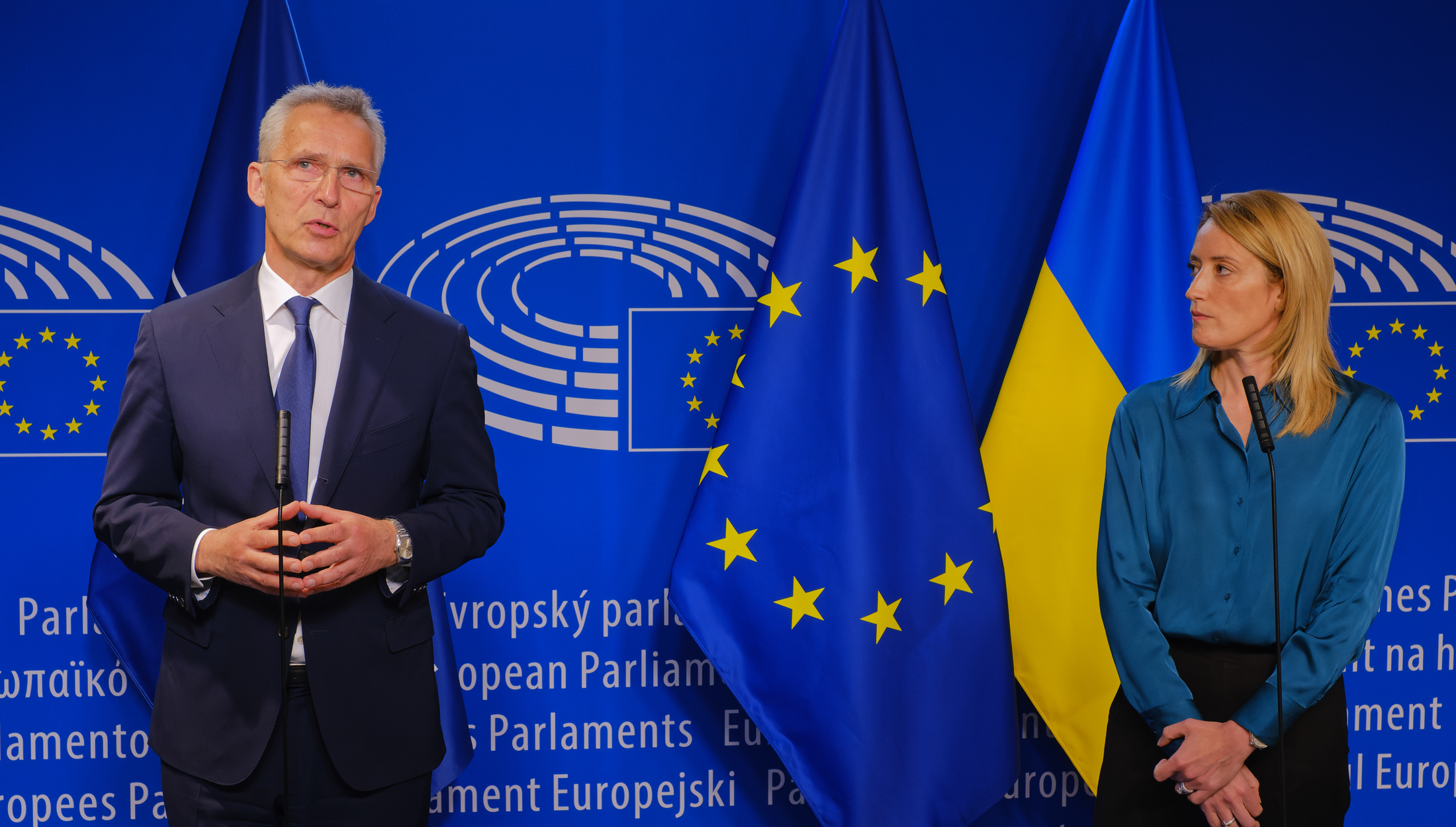Why Finland and Sweden are betting on NATO and not on EU defense

Finland has also officially announced its intention to join NATO. Facts and insights in the article by Stefano Magni for Atlantico Quotidiano
Finland has also officially announced its intention to join NATO. Note: Finland is already part of the European Union, but has no intention of waiting for the establishment of a common European army. He asked for NATO membership: when the going gets tough, it is the Atlantic Alliance that starts playing, not the EU.
A Eurolyricist will explain that it is precisely because of this "individualist" attitude that a common European army is lacking. And which, if there were, would guarantee protection equal to or greater than that which currently only NATO can offer. But it is a specious speech: the EU has had at least thirty years to think about establishing a common defense, at least an integrated defense, but it has never done so. Not because it was "sabotaged" by the US, which if anything would have every interest, if only to save money, in making Europe an autonomous second leg in the Euro-Atlantic defense (see in this regard " The Great Chessboard " by Zbigniew Brzezinski , year 1997). But why doesn't he want it.
What signals have come from the major Western European powers in recent months? After the first unanimous response against the Russian invasion, dutiful and driven by emotion, the usual tendency to divide the Western bloc and propose appeasement with Russia re-emerges. This can also be seen in Italy, with the change of language of the most pro-European party in government, the Democratic Party: from De Benedetti ("today we Europeans have no interest in waging war on Putin") to Delrio ("The words spent from England or those who think that peace consists in bending Putin show great irresponsibility. Americans should be careful not to use these tones. Draghi should say this "), passing through Letta himself (" The idea of winning, to beat the opponent does not belong to me ").
All these reactions are a reflection of the speech given by Emmanuel Macron, the first on the war after his re-election: “We must not give in to the temptation of revanchisms. Tomorrow we will have a peace to build "and" we will have to do it with Ukraine and Russia around the table. But this will not be done either with mutual exclusion, or even with humiliation ”. Macron also reiterated that Ukraine will take decades to join the EU. Both statements are true, practically self-evident. If peace is made, it will necessarily have to be made with Russia and, unless it wants to change all EU standards, Ukraine will take decades to join. What is significant is the moment: saying it now means sending out a signal that the EU is thinking of negotiated peace with Russia and not of "victory", a concept that instead emerges in all the latest speeches by Joe Biden and Boris Johnson . For the British government, in particular, Ukraine's victory on the ground in its just defensive warfare is "an imperative" (a term used by Liz Truss, foreign secretary) to preserve international order. Accepting a change of borders, following a war of Russian aggression, would instead pave the way for the law of the strongest in international relations.
In short, the difference between the Anglosphere and continental Western Europe is increasingly evident, as it was at the time of the Iraq war in 2003. But if then it was justified by the type of conflict, outside the European area and "by choice" ( it had to be decided whether or not to launch an international intervention, but no one was in danger of being invaded), today the difference, even if less marked, clashes much more. Continental Western Europe, contrary to the Anglosphere, has decided to renounce the use of weapons, even in the face of a militarily invaded neighboring country. Russian gas is not the origin of European choices for appeasement. France, for example, the first civilian nuclear power, does not need gas or oil, it cannot be blackmailed by Moscow. Yet he pushes for compromise instead of resistance. It is precisely the renunciation of war that has led Western Europe to disarm itself, politically, morally and militarily. Politically: Accepting compromise as long as it avoids conflict or ends it as soon as possible. Morally: if it is only peace that counts, the distinction between the aggressor and the attacked, as well as respect for international norms, take a back seat. Militarily: anyone who wants to win the elections, with very few exceptions, must promise a cut in military spending. Until this year, Germany itself was one of the most unarmed countries in the Western world.
However, the need for defense is different in those EU countries, such as Poland, the Baltic Republics, Finland and Sweden, which are directly exposed to the Russian threat, because, trivially, they are neighboring and begin to feel the breath of the predator on the neck. Their choice is to cling more to NATO, not to wait for the EU to change its mentality and perception of war and equip itself with a common defense. It is Boris Johnson, the face of Brexit, who travels to Sweden and Finland to discuss greater military cooperation, also in view of their entry into NATO. Paradoxically, to think concretely about the defense of the two EU members who feel most threatened is the country that has broken with the Union. These are things that should make us think.
This is a machine translation from Italian language of a post published on Start Magazine at the URL https://www.startmag.it/mondo/perche-finlandia-e-svezia-puntano-sulla-nato-e-non-sulla-difesa-ue/ on Sat, 14 May 2022 05:47:18 +0000.
